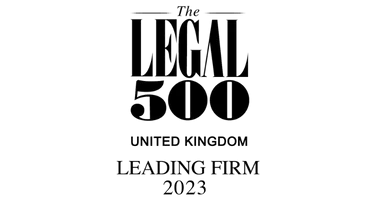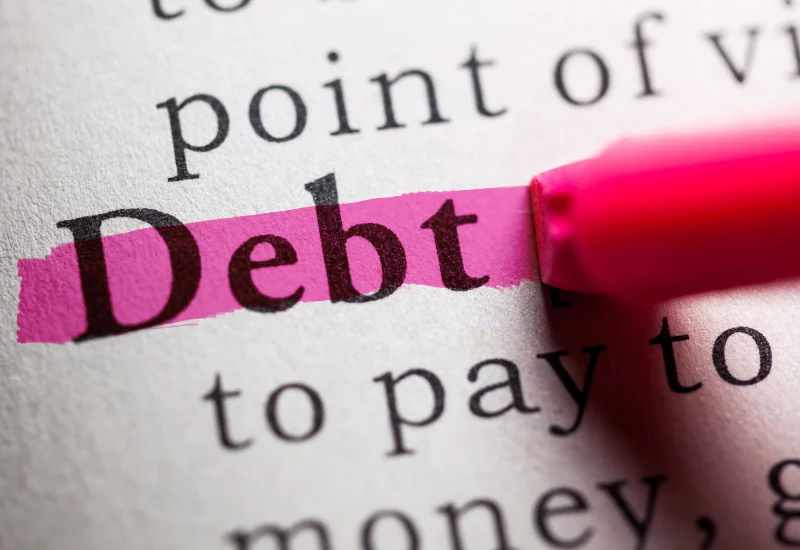You have a County Court Judgment against your debtor but payment remains outstanding. What steps can you take to enforce the Order and provoke repayment of the debt?
County Court Judgments (CCJs) are enforceable if a debtor fails to make payment as ordered. The court rules provide a number of debt enforcement options but the most appropriate option will depend on your case and the circumstances of your debtor.
Below is a brief outline of each option:
Taking control of goods
If your debtor has assets that can be seized and sold at auction, obtaining a writ or warrant of control may be the best way to secure payment of your judgment.
A writ of control is issued by the High Court and executed by High Court Enforcement Officers. Your judgment debt must be over £600 and cannot be a debt that was regulated by the Consumer Credit Act 1974.
County Court Bailiffs will execute a warrant of control for debts up to £5,000, unless the debt arises from an agreement that was regulated by the Consumer Credit Act 1974.
The removal of goods by way of writ or warrant of control is highly regulated, but at its basic the relevant enforcement officer will remove assets belonging to the debtor, such as cars, TVs etc, to sell at auction and use the proceeds to settle your debt. The debtor can of course avoid such action if they pay the debt and enforcement costs to the enforcement officer, and a repayment plan can be agreed to avoid the removal of goods.
Third party debt order
If you have your debtor’s bank account details or information that they have a large balance in that account or are expecting regular payments then it may be worth applying to the court for a third party debt order. A third party debt order will compel a third party that owes your debtor money to pay those funds directly to you instead.
There are several advantages and disadvantages to this type of debt enforcement. The key advantage of a third party debt order is the element of surprise. Once an interim order has been obtained, it is served on the debtor’s bank, who in turn freeze the bank account before the debtor is aware that the interim order has been issued. Any money in the account at this time cannot be withdrawn and the court can order those funds to be paid to you.
The obvious disadvantage of this method is that it can be somewhat of a gamble. Any money received after the interim order will not be subjected to the freeze. This means it is all a matter of timing to ensure that there is money in account at the time of the interim order.
Attachment of earnings
Once obtained, an attachment of earnings order means a debtor’s employer is ordered to make regular monthly/weekly deductions from the debtor’s wages.
There are limits to the amount that can be taken from the debtor’s salary, but provided your debtor is working as an employee as opposed to being self-employed and is earning a reasonable salary the contributions should start clearing the debt.
In some cases the debtor may reply and offer a repayment directly to avoid their employer hearing about their debt. If the debtor was to default on any agreed repayments, the court could then go directly to the employer. Equally, if the debtor does not respond the court will approach the employer directly, if the employer’s details are known.
Charging order
If your debtor has an interest in a property, you could look to secure your Judgment debt by way of charging order.
A charge allows a priority against subsequent transactions i.e., the judgment debt has to be settled out of the sale proceeds before the difference is distributed to the debtor, or it may require the debtor to give notice of the sale within a prescribed time limit or prevent them from selling without given prior notice to the creditor.
Ultimately a charging order can lead to an order from the court that the property be sold.
This method of debt enforcement should be seen more as a method of security but the action can prompt a discussion about repayment and the severity of the action acts as a strong focus for the debtor.
Information order
Orders to obtain information from a judgment debtor is not a method of enforcement that generally results in direct payment, but rather it is a useful tool that can be used to determine which other method of debt enforcement can be used.
When a debtor is ordered to attend court, they will be required to provide information about their income and assets. A creditor can then use this information to decide on their next steps.
One advantage of this tool is the threat of being found in contempt of court if the debtor fails to attend court when ordered. The fear of attending court to answer questions under oath may also prompt the debtor to put forward an offer of repayment.
Insolvency
Compulsory insolvency proceedings can be instigated as the result of a judgment. This is, however, a complex and sometimes costly process that may not result in recovery if the debtor is truly insolvent.
Why choose Trethowans?
You should always seek expert legal advice from debt enforcement solicitors before embarking on enforcement action to avoid any costly mistakes. Our specialist enforcement solicitors have years of experience with this process and are able to assist you every step of the way.
Our team have also been recommended in The Legal 500 2023 UK Guide.










